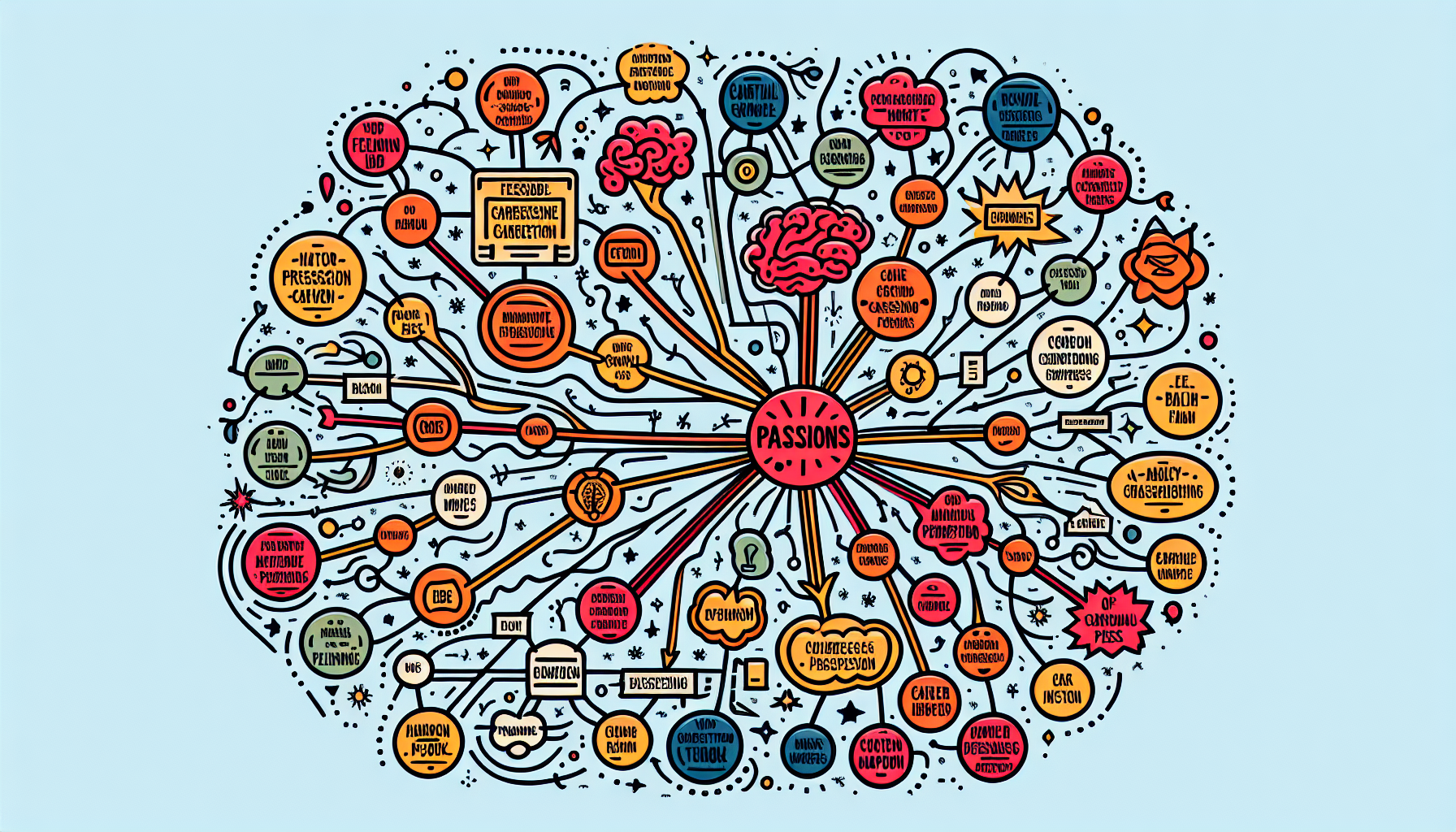The Rise of the Portfolio Career: Juggling Passions and Professions

The portfolio career model is gaining momentum across various industries, driven by the desire for flexibility, personal fulfillment, and the need for economic resilience. According to a report from the Freelancers Union, over 35% of the American workforce is engaged in freelancing, a figure that continues to rise. This trend indicates a significant shift in how individuals perceive their professional journeys. For instance, consider Sarah, a graphic designer who works full-time during the week but devotes her weekends to teaching art classes and running an Etsy shop where she sells her artwork. This portfolio career not only enriches her life but also offers financial security through diverse income channels. By combining her professional skills with her passions, Sarah embodies the essence of the portfolio career, proving that it’s possible to harmonize work and personal interests in a meaningful way.
The Mindset for Success
Thriving in a portfolio career requires more than just managing multiple jobs; it demands a versatile mindset characterized by flexibility, creativity, and resilience. Professionals must be willing to embrace continuous learning, adapt to various work environments, and pivot when necessary. This adaptable mindset is crucial for navigating the uncertainties that accompany juggling multiple responsibilities. Additionally, networking becomes paramount in this landscape. Building relationships and collaborating with others can lead to new opportunities and insights. For example, a writer might team up with a photographer for a freelance project, enhancing both their portfolios while expanding their professional networks. Such collaborations not only foster creativity but also provide a support system that can be invaluable in a portfolio career.
Time Management Tips
One of the most significant challenges faced by individuals with portfolio careers is effective time management. Here are practical strategies to help maintain balance and productivity: 1. **Prioritize Tasks:** Utilize tools like the Eisenhower Matrix to differentiate between urgent and important tasks. Doing so can help focus on what truly matters and prevent burnout. 2. **Set Clear Boundaries:** Establish specific work hours for different roles. This practice aids in staying organized and allows for better integration of work and personal life. 3. **Use Technology Wisely:** Leverage project management and scheduling apps like Trello or Asana to keep tasks organized and ensure deadlines are met. 4. **Regularly Review Goals:** Dedicate time to assess your goals and progress. This reflection allows for realignment of priorities and ensures that all facets of your portfolio career are thriving.
Marketing Yourself as a Multifaceted Professional
In a portfolio career, effective marketing is essential for success. Here are strategies to present oneself compellingly: 1. **Build a Personal Brand:** Create a cohesive online presence that reflects your diverse skills and interests. Utilize social media platforms, personal websites, and professional networks like LinkedIn to showcase your work. 2. **Tailor Your Resume:** Highlight diverse experiences and skills relevant to the roles you seek. A portfolio that emphasizes adaptability and breadth of experience can set you apart from traditional candidates. 3. **Engage in Content Creation:** Share your expertise through blogs, podcasts, or webinars. Establishing yourself as an authority in your field can attract clients and employers, enhancing your professional visibility. 4. **Network Actively:** Attend industry events, join online forums, and participate in local meetups. Building connections can lead to collaborative projects and new opportunities that align with your multifaceted career.
The rise of the portfolio career signifies a fundamental shift in how professionals approach their work and identity. By adopting a versatile mindset, managing time effectively, and strategically marketing oneself, individuals can navigate the complexities of juggling multiple passions and professions. As the landscape of work continues to evolve, the portfolio career presents a promising pathway for those seeking fulfillment, flexibility, and financial stability. Whether you are a seasoned professional looking to diversify your income or an individual exploring new passions, embracing the portfolio career model may be the key to unlocking a more enriching and balanced work life. The future of work is not just about specialization; it’s about the continuum of careers that allow individuals to thrive in their diverse interests while achieving professional success.
Freelance Graphic Designer
Marketing agencies, startups, small businesses
Core Responsibilities
Create visual content for a variety of projects, including branding, marketing materials, and digital media.
Collaborate with clients to understand their vision and deliver designs that meet their needs.
Manage multiple projects simultaneously while adhering to deadlines.
Required Skills
Proficiency in design software such as Adobe Creative Suite (Photoshop, Illustrator, InDesign).
Strong portfolio showcasing diverse design styles and completed projects.
Excellent communication skills to effectively convey design concepts to clients.
Common Employers
Marketing agencies, startups, and small businesses often hire freelance graphic designers for short-term projects.
Content Creator (Blogging/Vlogging)
Brands, media companies, personal blogs or channels
Core Responsibilities
Develop engaging content for blogs or video platforms, focusing on a niche area of expertise or interest.
Utilize SEO strategies to enhance content visibility and reach a broader audience.
Engage with followers through comments and social media to foster a community around your content.
Required Skills
Strong writing and editing skills, or video production and editing skills, depending on the medium.
Understanding of digital marketing, social media, and analytics tools.
Creativity and originality to differentiate content in a saturated market.
Common Employers
Brands looking for influencers, media companies, and personal blogs or channels.
Virtual Assistant
Entrepreneurs, small businesses, busy professionals
Core Responsibilities
Provide administrative support to entrepreneurs and small business owners, including scheduling, email management, and research.
Assist in project management and coordination of various tasks to ensure operational efficiency.
Handle customer service inquiries and manage client communication.
Required Skills
Proficient in office software (Microsoft Office, Google Workspace) and project management tools (Asana, Trello).
Strong organizational skills and attention to detail.
Ability to work independently and manage time effectively across multiple clients.
Common Employers
Entrepreneurs, small businesses, and busy professionals seeking remote administrative support.
Social Media Manager
Marketing agencies, corporations, small businesses
Core Responsibilities
Develop and implement social media strategies to increase brand awareness and engagement across platforms.
Create and curate content tailored for different social media channels, including graphics, posts, and videos.
Monitor analytics to assess the effectiveness of campaigns and adjust strategies accordingly.
Required Skills
Proficiency in social media management tools (Hootsuite, Buffer) and analytics platforms (Google Analytics, Facebook Insights).
Strong writing skills and a keen understanding of social media trends and audience engagement.
Creativity and design skills to develop visually appealing content.
Common Employers
Marketing agencies, corporations, and small businesses looking to enhance their online presence.
Teaching Artist (Workshop Facilitator)
Community centers, schools, art organizations
Core Responsibilities
Design and deliver workshops or classes in a specific artistic discipline (e.g., painting, writing, photography) to various age groups.
Develop curriculum and instructional materials tailored to the needs of participants.
Foster a creative and inclusive environment that encourages exploration and expression.
Required Skills
Expertise in a specific art form, along with teaching or facilitation experience.
Strong interpersonal skills to engage and motivate participants.
Ability to adapt lessons to different skill levels and learning styles.
Common Employers
Community centers, schools, and art organizations often seek teaching artists for workshops and programs.


